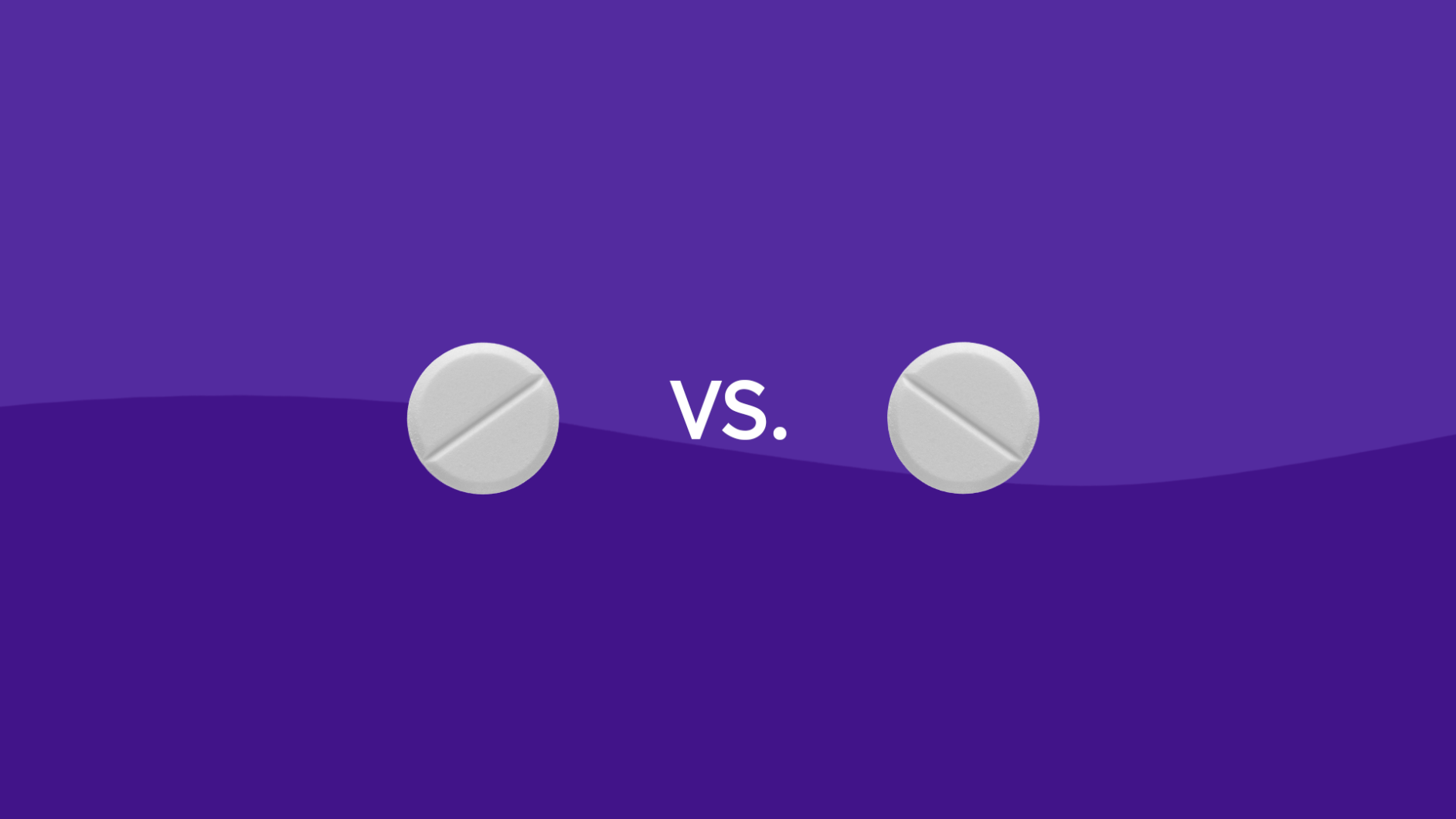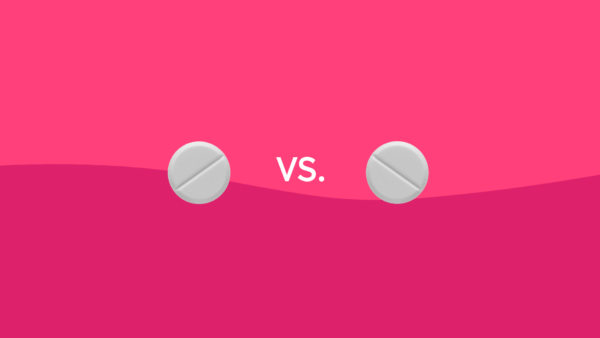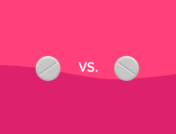Key takeaways
Vyvanse and Adderall are central nervous system stimulants used to treat ADHD in adults and children.
Because they are both stimulants, Vyvanse and Adderall have many similarities, such as side effects, warnings, and drug interactions. However, there are some differences, such as FDA-approved uses and dosing.
Consult your healthcare provider for more information about your condition and treatment options.
Main Differences | Adderall vs. Vyvanse | Conditions treated | Efficacy | Coverage and cost comparison | Side effects | Warnings | FAQs
Adderall and Vyvanse are central nervous system (CNS) stimulant medications approved by the Food and Drug Administration (FDA) to treat attention deficit hyperactivity disorder (ADHD) in adults and children. Both Adderall and Vyvanse are Schedule II controlled substance drugs, meaning there is a high potential for abuse, misuse, and dependence. These drugs have some similarities and some differences. This article will provide in-depth information about both prescription medications.
What are the main differences between Adderall and Vyvanse?
Adderall
Adderall is a CNS stimulant drug used in the treatment of ADHD and narcolepsy in adults and children. It comes in an immediate-release tablet and extended-release capsule (Adderall XR) formulation. Both are available in brand and generic. The generic name (and active ingredient) is dextroamphetamine/amphetamine, also known as mixed amphetamine salts (more specifically—amphetamine sulfate, amphetamine aspartate, dextroamphetamine sulfate, and dextroamphetamine saccharate).
Adderall is usually covered by insurance, but using the generic version may be more cost-effective. This medication is usually taken two or three times a day; each dose lasts about 4 to 6 hours. Adderall XR is taken once a day, and each dose can last up to 8 to 12 hours.
Adderall comes with many side effects, drug interactions, and warnings, many of which can be managed with careful monitoring and continuous evaluation.
Vyvanse
Vyvanse is a CNS stimulant drug used to treat ADHD in adults and children, as well as moderate to severe binge eating disorder in adults. Vyvanse comes in capsule form and as a chewable tablet and is available in both brand and generic. Vyvanse is usually covered by insurance, although choosing the generic may result in cost savings.
The active ingredient of Vyvanse is lisdexamfetamine. Lisdexamfetamine is known as a prodrug because it is not active until it is converted into its active form, dextroamphetamine, in the GI tract and liver. Because of this mechanism, it may be less likely to be abused than Adderall. Vyvanse is taken once daily in the morning; a dose can last up to 14 hours.
Adderall vs. Vyvanse |
||
|---|---|---|
| Adderall | Vyvanse | |
| Drug Class | CNS Stimulant | CNS Stimulant |
| Brand/generic status | Brand and generic available | Brand and generic available |
| What is the generic name? | Dextroamphetamine/amphetamine | Lisdexamfetamine dimesylate |
| What form does the drug come in? | Tablets: 5, 7.5, 10, 12.5, 15, 20, 30 mg
Adderall XR extended-release (XR) capsules: 5, 10, 15, 20, 25, 30 mg |
Capsules: 10, 20, 30, 40, 50, 60, 70 mg
Chewable tablets: 10, 20, 30, 40, 50, 60 mg |
| What is the standard dosage? (Doses vary; examples provided are general doses) | ADHD in adults & children 6 years and older: 5 to 40 mg per day, divided once, twice, or 3 times daily
ADHD in children 3-5 years old: 2.5 to 40 mg per day divided once, twice, or 3 times daily Narcolepsy in adults: 5 to 60 mg per day, divided once, twice, or 3 times daily Narcolepsy in children 6 years and older: 5 to 60 mg per day divided once, twice, or 3 times daily |
ADHD in adults or children 6 years and older: 30 to 70 mg once daily in the morning
Binge eating disorder in adults: 50 to 70 mg every morning |
| How long is the typical treatment? | Varies, patients should be closely monitored | Varies, patients should be closely monitored |
| Who typically uses the medication? | Adults or children with ADHD or narcolepsy | Adults with ADHD or moderate to severe binge-eating disorder; children with ADHD |
Conditions treated by Adderall and Vyvanse
Adderall is used in adults and children for the treatment of ADHD or narcolepsy. (Adderall XR is approved for ADHD but not narcolepsy.)
Vyvanse is used in adults and children for the treatment of ADHD. It is also used in adults for moderate to severe binge eating disorder.
As stimulants, these drugs work by increasing levels of neurotransmitters, or chemical messengers, called dopamine and norepinephrine, in the brain.
| Condition | Adderall | Vyvanse |
| ADHD (children and adults) | Yes | Yes |
| Binge-eating disorder (moderate to severe) | No | Yes |
| Narcolepsy (children and adults) | Yes | No |
Is Adderall or Vyvanse more effective?
Both drugs have gone through extensive testing for safety and effectiveness. However, there is little data comparing the two medications directly. ADHD treatment generally consists of therapy with a mental health professional, ADHD medications, and educational or work interventions.
Guidelines for ADHD treatment in adults note that there are two general types of stimulants: methylphenidates (such as Ritalin) and amphetamines (such as Adderall and Vyvanse). Stimulants have a similar effect on ADHD symptoms regardless of the type of stimulant used. Also, regardless of the patient’s age, healthcare professionals try to prescribe stimulants at the lowest effective dosage.
Guidelines from the American Academy of Pediatrics for children and adolescents recommend:
- For children ages 4-5 years old, behavior therapy should be the first line of treatment. If that is not sufficient, a methylphenidate-type stimulant may be needed.
- For children ages 6-11 years old, therapy and medications are recommended. Stimulant medications have strong evidence for use in this age group, while non-stimulants (such as Intuniv or Strattera) have “sufficient but less strong” evidence.
- For adolescents 12 to 18 years old, therapy and medication are recommended.
Both drugs have been shown to be effective; however, everyone reacts differently to medications. Consult with your doctor about which medication may be more appropriate for you or your child.
Coverage and cost comparison of Vyvanse vs. Adderall
Insurance usually covers generic forms of Vyvanse or Adderall. The brand-name drugs may be covered, but the out-of-pocket costs tend to be higher. You can contact your insurance plan for up-to-date pricing information on these medications.
You can save on prescription drugs with SingleCare coupons; click the links to check out our savings on Adderall and Vyvanse.
| Adderall | Vyvanse | |
| Typically covered by insurance? | Yes | Yes |
| Typically covered by Medicare Part D? | Generic is generally covered, while brand is not | No |
| Standard dosage | Example: 20 mg, 60 count, taken as 1 tablet twice a day | Example: 50 mg, 30 count, taken as 1 tablet daily in the morning |
| SingleCare Cost | $17 for 60, 20 mg tablets of generic Adderall | $92 for 30, 40 mg capsules of generic Vyvanse |
| Adderall coupons | Vyvanse coupons |
Common side effects of Adderall vs. Vyvanse
Adderall and Vyvanse have some of the same side effects since they are both CNS stimulants.
Common side effects of Adderall include:
- Nervousness
- Headache
- Sexual problems
- Menstrual cramps
- Dry mouth
- Stomach problems such as nausea, diarrhea, or constipation
- Weight loss
RELATED: Adderall side effects in women
Common side effects of Vyvanse include:
- Sleepiness
- Dizziness
- Headache
- Dry mouth
- Stomach problems such as nausea, diarrhea, or constipation
- Weight loss
Consult your healthcare professional for more information on side effects.
RELATED: Vyvanse side effects in men | Vyvanse side effects in women
Vyvanse and Adderall warnings and interactions
Before taking Vyvanse or Adderall, be sure to tell your healthcare provider about your medical history and any medical conditions you have. Some of the warnings of both drugs include:
- A black box warning is the strongest warning required by the FDA for misuse, abuse, and dependence. Misuse can also cause sudden death.
- People with heart problems are at higher risk for sudden death. Tell your doctor if you have a history of any type of blood pressure or heart problem.
- Stimulants may affect growth. Children who take stimulants will have their growth monitored.
- Seek emergency medical help if you have symptoms of serotonin syndrome, which may include nausea, vomiting, diarrhea, seizures, muscle stiffness, incoordination, fast heartbeat, changes in blood pressure, dizziness, sweating, agitation, hallucinations, or other mental status changes.
As stimulants, Adderall and Vyvanse have a similar drug interaction profile. Before taking either drug, tell your doctor about all the medications you take, including prescription and OTC drugs, vitamins, and supplements. Some examples of drugs that interact with Adderall or Vyvanse include:
- Monoamine oxidase inhibitors (MAOIs)
- Medications that increase serotonin levels, such as certain antidepressants, triptans for migraine, and opioid pain medications
- Blood pressure medications
Consult your healthcare provider for more information about warnings and drug interactions and how they may affect you.
Frequently asked questions
Which is better: Adderall or Vyvanse?
It depends. Everyone has different reactions to different medications. Your doctor can help you pick the drug that is right for you based on your individual medical history and needs.
Can I use Adderall or Vyvanse while pregnant?
No. Adderall and Vyvanse should both be avoided while pregnant or breastfeeding. If you become pregnant while already on this medication, consult your prescriber immediately for medical advice.
Can I use Adderall or Vyvanse with alcohol?
No. Both medications are very dangerous to mix with alcohol. Not only can alcohol worsen symptoms of ADHD, but it can interact with these stimulants, causing serious complications like a heart attack, stroke, or alcohol poisoning. What’s more, alcohol and stimulants have opposite effects, which can lead an individual to use more of one or both and may result in an overdose.
Can you mix Adderall and Vyvanse?
No. The additive effects can cause rapid heartbeat, high blood pressure, or other side effects. It is also duplicate therapy, and not necessary to use both.
Is Vyvanse more intense than Adderall?
As a prodrug, Vyvanse is an inactive drug until the body converts it into its active form. This lowers the abuse potential of the drug. Vyvanse also lasts longer, up to 12 hours. On the other hand, the immediate-release form of Adderall works faster lasts for a shorter time, and is more likely to be abused. You can consult your doctor for more information about these medications.
Do Vyvanse and Adderall cause weight loss?
Both stimulant medications are associated with loss of appetite and weight loss because they increase energy and decrease appetite. However, these drugs should never be used for the purpose of weight loss. These medications are highly regulated and can have very serious side effects, so they should only be used as intended.
Sources
- Adderall, National Library of Medicine DailyMed (2023)
- Dextroamphetamine-amphetamine, StatPearls (2023)
- Adderall XR, National Library of Medicine DailyMed (2023)
- Dextroamphetamine and amphetamine, MedlinePlus (2019)
- Vyvanse, National Library of Medicine DailyMed (2023)
- Lisdexamfetamine, MedlinePlus (2021)
- Drug scheduling, United States Drug Enforcement Administration
- Treatment and management of ADHD in adults, American Academy of Family Physicians
- ADHD: Clinical practice guideline for the diagnosis, evaluation, and treatment of attention deficit hyperactivity disorder in children and adolescents, Pediatrics (2011)





